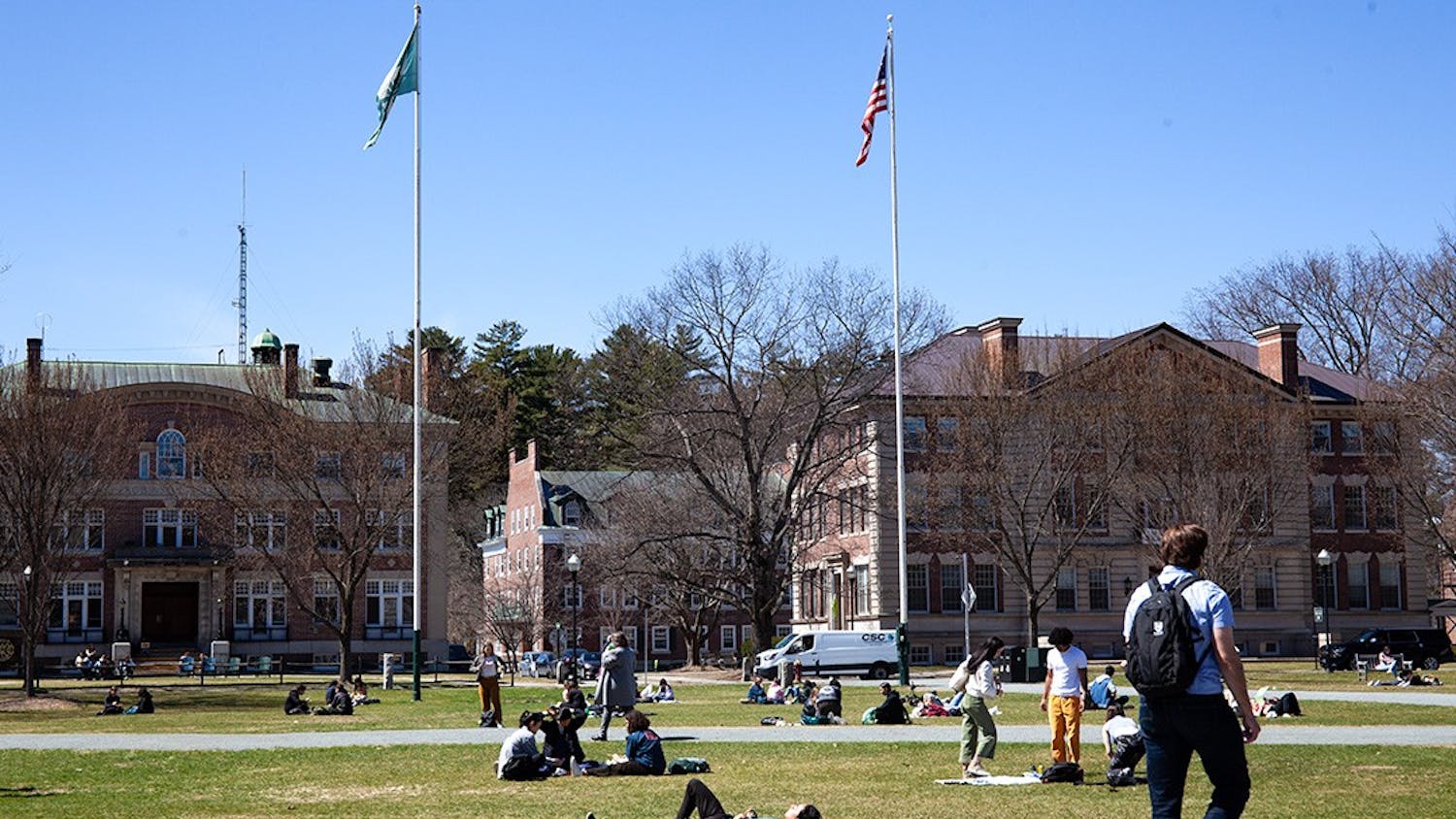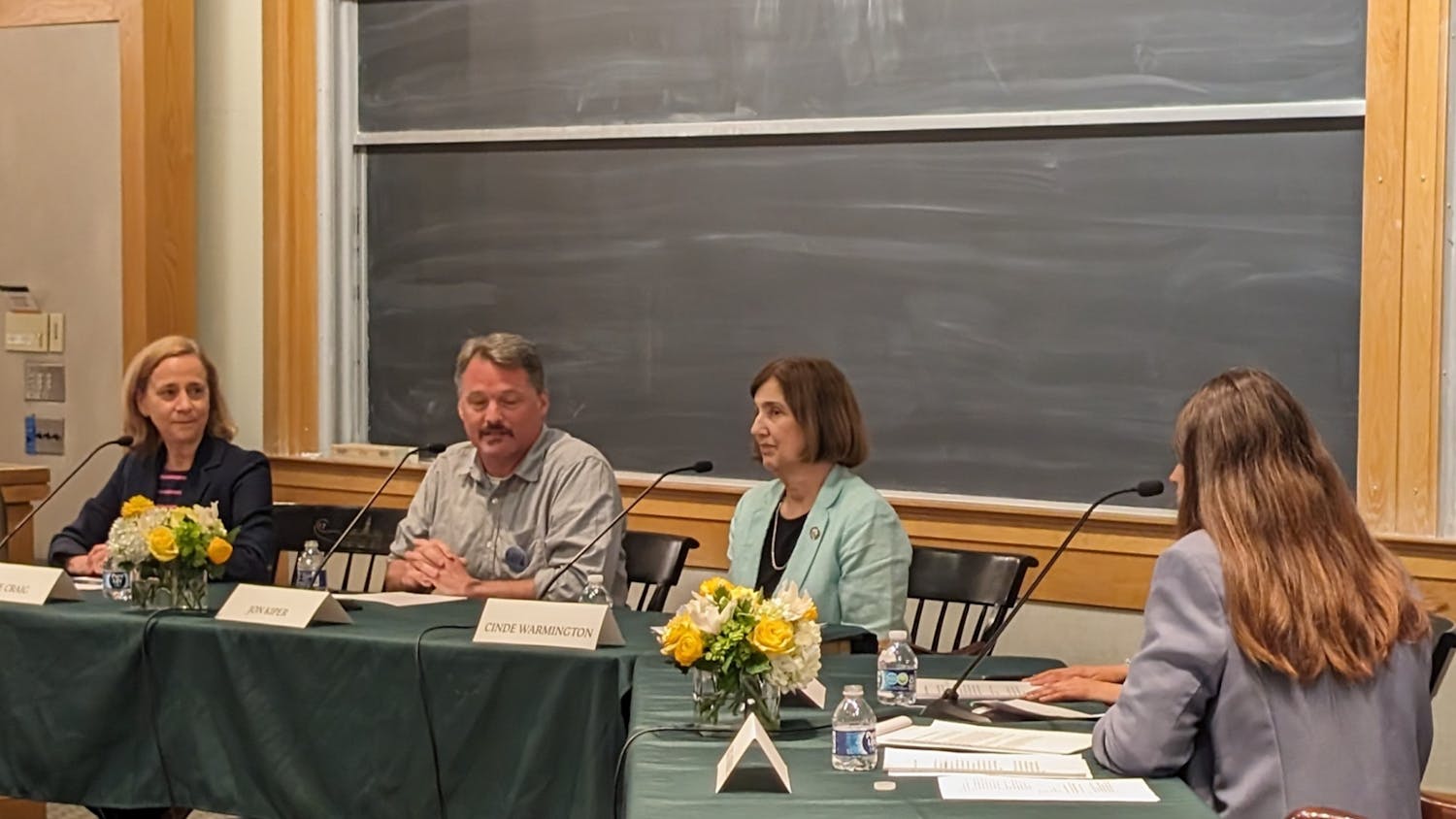As the resume drop comes to an end and you run around dressed smartly hoping to find your future employers, I can't help but hope that some of you consider alternative options. The drive to secure employment and start making money is strong, I'm sure, but all of you are in unique positions in your lives: You're young, you're single and you have the education and skills to make a difference in the world. I would like to encourage you to think seriously about using this opportunity to pursue options in service.
Two summers ago, I sat in a lunch discussion group with College trustee and former Marine Corps officer Nathaniel Fick '99. One of the students asked him if he had any advice for graduating students, and he responded that he would encourage the other students to consider service whether it be the armed forces, the Peace Corps, Teach for America or any other of the myriad routes available. Boiled down, he told the students that there would always be time to make money, but they were in a unique opportunity to make a difference.
Fick's advice comes from a position of a Dartmouth student who has been in the same spot as all of you. Upon graduation, Fick, against the advice of some of his professors, friends and family, commissioned as a second lieutenant in the Marine Corps. During his time in the Marines, Fick served among the first Marines to deploy to both wars in Afghanistan and Iraq. After leaving the Marines in 2003, he went on to receive degrees from Harvard Business School and the Kennedy School of Government. Since that time, he has written a national bestseller, served as chief executive officer of the think tank Center for a New American Security and become the youngest trustee of the College. He is now the chief executive officer of Endgame, a cyber security company.
Why am I telling you all of this? Because Fick's story demonstrates that there is time to make money and pursue a career after service. I have had many Dartmouth students tell me that they plan on making enough money to secure their financial futures, after which they plan on pursuing their passions or opportunities to serve. While that is a laudable goal, I can tell you that life rarely works that way. After a few years in the work force, certain standards of living, friends, location, family and many other factors make it difficult to do what could be viewed as starting over. Right now, you are in a position you will never be in again during your life. Take advantage of that.
During the question-and-answer session at Gen. James Mattis' talk last Wednesday, an audience member asked if he felt that we needed more officers from ROTC and the service academies. His response was "no": The Marine Corps needs men and women who have experienced other cultures, studied abroad and who have been taught to think. Mattis, in his response, was slyly hinting at you.
And this goes beyond just the Marine Corps. The education and opportunities afforded by Dartmouth make you equipped to make a difference in many diverse areas. If there is a certain calling that you have a passion for, pursue it. I had a friend who began teaching through Teach for America in Mississippi. Many of the high school math teachers he worked along side could not pass the standardized math tests in the school. He was able to make a difference immediately in the classroom. I have also known people who have joined the Peace Corps. Their respect and time spent in various cultures prepare them for their future service. Many of you have studied abroad, come from diverse background and spent time with diverse groups. The academic and non-academic aspects of your education make you well suited to serve.
I understand that this may not be practical for everybody. College loans, post-graduation studies and a myriad of other factors affect the decision on what to do after college. To be sure, we need good doctors, lawyers and yes, even investment bankers. However, as you meet potential employers, shake hands and conduct interviews, I would challenge you to consider a broader range of options. You'll never have this opportunity again.



